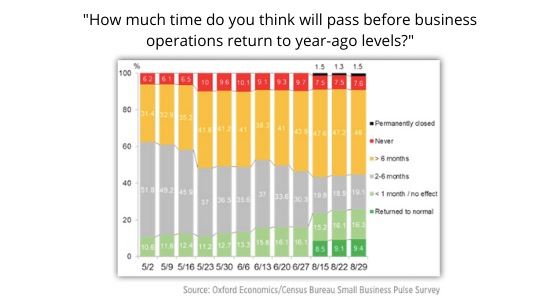The U.S. Travel Association released new data this week that showed that 55 percent of all small travel-related businesses in the U.S. are at risk of either taking longer than six months to recover or never recovering at all.
The data, compiled by the data analytics firm Tourism Economics, showed the economic disruption caused by the pandemic posed an extreme threat to travel-supported jobs, which employed one in 10 Americans pre-pandemic.
More than half of travel-supported jobs in the U.S. disappeared between the onset of the pandemic and May 1, and the overall U.S. economy is projected to lose $1.2 trillion this year because of the drop in travel.
Prior to the pandemic, travel was a Top 10 employer in 49 states and the District of Columbia, with many of those employed at small businesses with less than 50 employees.
“These numbers highlight the urgent need for further legislative measures to provide immediate relief to small travel businesses and their employees, many of which were unable to access earlier rounds of aid,” said Roger Dow, U.S. Travel Association president and CEO. “Washington acted quickly and aggressively to get assistance out the door in the early days of the pandemic, but the situation remains exceptionally dire on huge swaths of Main Street U.S.A., and more needs to be done.”
The data found unemployment in tourism related sectors continues to be much higher than in any other major sector.
The U.S. Travel Association has provided a series of policy proposals, including legislation to extend the Paycheck Protection Program until there’s an economic recovery, more direct aid to airports, up to $10 billion in federal grants to support healthy and safe travel practices, additional tax credits and deductions and the development of a national testing program for COVID-19.
“We will do whatever it takes to get leaders to return to the negotiating table and advance another deal before the election,” Dow said. “Each moment that passes makes it likelier that more small businesses will shut their doors and never reopen—meaning those jobs are gone for good, too.”






